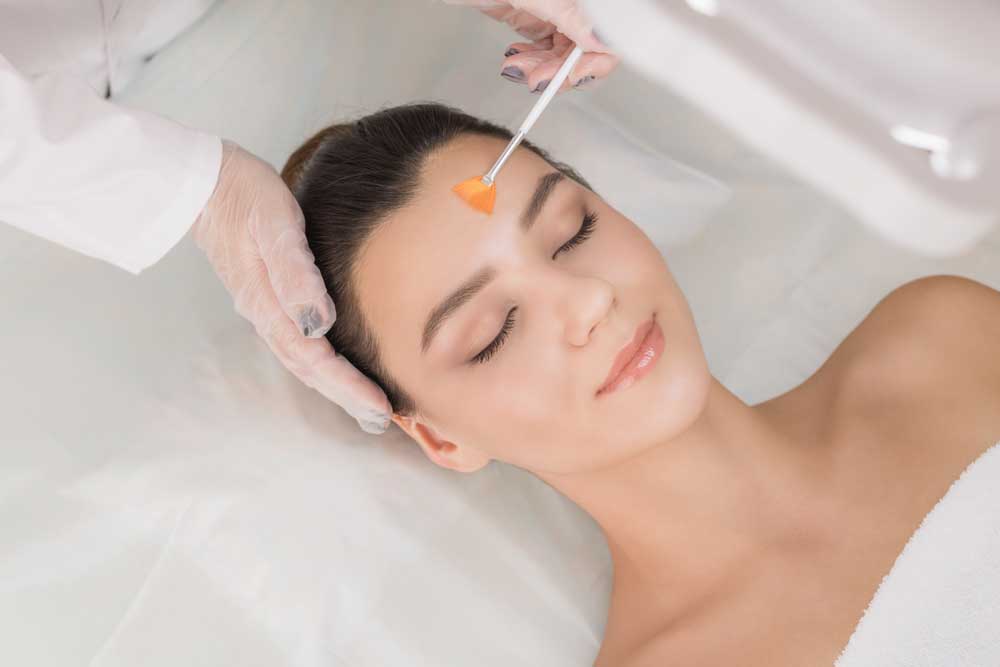
Are Chemical Peels Summer Safe? Here’s What You Need to Know…
Our skin is naturally designed to endure various seasons, from the hottest summer days to the chilliest winter nights. Yet, there is a commonly accepted belief that you should avoid chemical peels in the summer. This misconception is understandable, given that proper post-peel care emphasizes avoiding extended sun exposure. However, with the appropriate sun protection and a bit of tender loving care, getting a peel during the summer is both safe and potentially beneficial for your skin.
How, exactly? Let’s take a look at the safety, myths and proper aftercare of summer chemical peels.
Debunking the Myth: “You Can’t Get a Chemical Peel in the Summer”
The myth that you should avoid chemical peels in the summer stems from one of the most important aftercare guidelines: minimizing prolonged sun exposure while your skin heals. Since summer days are typically hotter and sunnier, it’s easy to see where this misconception comes from — not to mention that we always advise practicing daily sun protection to maintain the health and appearance of your skin, whether you’ve had a chemical peel or not!
While we stand by that, the truth is your skin is resilient and can handle a bit of sun exposure during recovery. Just make sure to limit it and take proper precautions like wearing sunscreen and protective clothing. In other words, do exactly what you should be doing on any other day
The Reality: Summer Can Be the Perfect Time for a Peel
Hot take: summer can be an excellent time for a chemical peel. To understand why, let’s first look at what a peel does.
As we age, our skin’s cell turnover process slows down. Chemical peels, such as our VI Peel, promote skin regeneration and exfoliation, speeding up the natural cycle of shedding old skin cells to reveal fresh, new ones.
The acids used in chemical peels do not trigger new melanin (skin pigment) production. But improper post-peel care, like not wearing SPF or staying in the sun too long, can lead to increased melanin production and potential hyperpigmentation.
Proper sun protection after a chemical peel should be consistent with everyday skin care. The Skin Cancer Foundation recommends that everyone over six months old wear sunscreen daily to prevent premature aging, sunburns and skin cancer. As long as you’re diligent about sun protection, your chemical peel results won’t be compromised, regardless of the season.
Addressing Concerns: Heat and Chemical Peels
While you should avoid prolonged sun exposure and intense heat during the healing process, there’s a distinction between types of heat that matters. Environmental heat, such as warm summer temperatures, differs from internally generated heat from activities like exercise and sauna use, which causes sweating. You should avoid excessive sweating after a chemical peel because it can irritate your sensitive skin.
Everyday activities like running errands or taking a stroll are perfectly safe post-peel, as long as you protect your skin with sunscreen. Think of it this way — if getting a chemical peel in warm weather were truly problematic, states with year-round sun like California and Florida would be unable to administer chemical peels in any season. Skip your sweatiest activities, and your skin should recover just fine.
The Unexpected Benefits: Summer Peels Can Be Advantageous
The increased humidity in summer can act as a natural moisturizer, counteracting the dryness and irritation that even gentle chemical peels can cause. For those with dry, dehydrated or sensitive skin, this additional moisture can create an optimal environment for a peel, reducing the risk of irritation and promoting better results.
UV rays are present year-round, so sun damage can occur at any time. However, many people notice that their dark spots and uneven skin tone become more pronounced in the summer. Treating discoloration early, when it’s fresh, can prevent it from becoming more deeply embedded in your skin. A summertime peel can effectively address new sun damage, helping you maintain a clear, even complexion.
Important Considerations: Timing and Skin Condition
While summer peels are safe, we do advise avoiding them if your skin is sunburned or has been recently exposed to intense sun. If you’ve just returned from a beach vacation, it’s best to let your skin recover fully before undergoing a peel.
Unsure if your skin is ready? Consult with our team to make an informed decision.
When Is the Best Time for a Chemical Peel?
Ultimately, the best time for a chemical peel is whenever you and your aesthetic provider decide it matches your needs and goals. Consistent skin care, including regular peels, is critical for keeping your complexion healthy, hydrated and bright all year long. Many experts recommend getting a peel at least once a quarter to keep your skin looking its best.
Start Your Summer Skin Transformation Today!
At Wink Medical Aesthetics, our team of expert estheticians and other providers is committed to guiding you through your skincare journey. Chemical peels and other advanced skin treatments are smart ways to achieve significant, long-lasting improvements in your skin’s health and appearance. When administered correctly, these treatments can deliver remarkable results!
We offer a range of chemical peels, including the VI Peel, which is perfect for treating sun damage on your face, décolleté, shoulder and other areas. If you’re dealing with sun damage, melasma or hyperpigmentation, our VI Peel Precision Plus is specially formulated to address these concerns.
Please call us at 512-263-2400 or book now to schedule your consultation. Enhance your natural beauty with Wink Medical Aesthetics, where we transform patients into friends. Book your appointment today and experience the difference!


